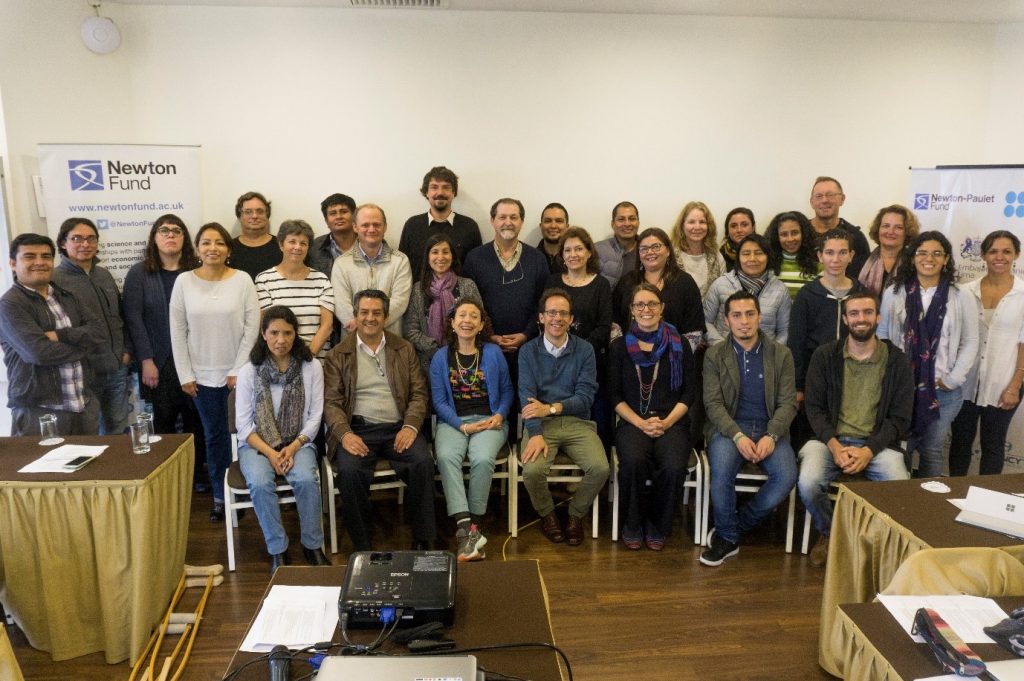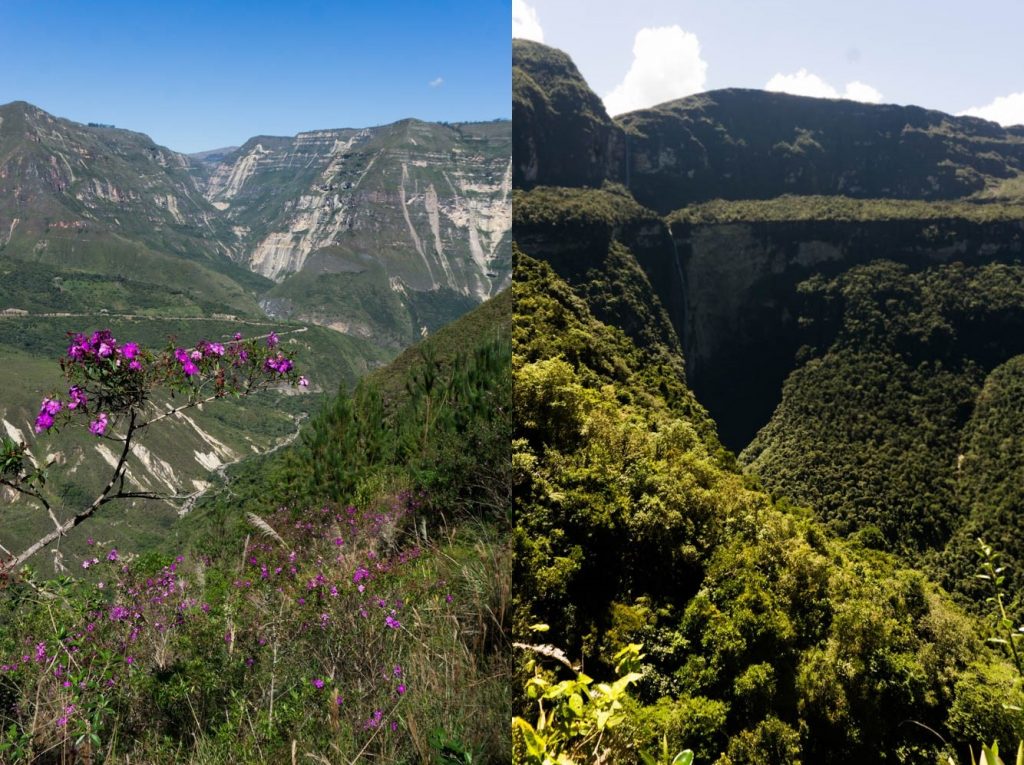The dry and montane forests of the Andes are vital for the lives of tens of millions of people in western South America. Their socio-economic worth in cycling water, providing food, and preventing landslides, among many other services, are difficult to calculate.
This was the task facing an international group of scientists, economists, conservationists, and policy makers this week in Lima, the capital of Peru. Funded by the British Council and Newton Fund and jointly arranged by the University of Exeter, Royal Botanic Garden Edinburgh and Universidad Nacional Agraria, La Molina. Workshop participants from the UK, Peru, USA and from seven Latin American countries met to share their data and expertise, and to discuss ways to form networks focused on valuing Andean forests.

An international group of scientists, conservationists, economists, and policy makers in Lima, Peru.
Workshop sessions focused upon identifying key policy questions in for conservation and sustainable use of dry and montane forests, the science required to inform those decisions, and the collaborative networks required to produce the data that we need. A particularly appreciated session focused upon development of early-career researchers and how they can have a meaningful impact upon collaborative networks.

Sonia Palacios from the Forest Herbarium, Universidad Nacional Agraria La Molina, Peru, discussing her work on monitoring the montane and dry forests of the Peruvian Selva Central.
Underpinning all benefits of Andean forests is biodiversity, and in particular plant biodiversity. At the Royal Botanic Garden Edinburgh, we have a long history of working in Andean forests. Together with specialists from around the world, our experts were able to identify gaps in our knowledge of Andean plant distributions. The work of RBGE scientists and their collaborators will be instrumental in filling these gaps into the future.

Collections by RBGE scientists provide vital data underpinning our knowledge of the value of Andean biodiversity
The new collaborations and data shared during this workshop will be instrumental in highlighting the value of biodiversity in policy decisions throughout the Andes for years to come.


Rodolfo Marquina
Can you send us the results of this workshop?
We are working in the Reserva Nacional de Salinas y Aguada Blanca in Arequipa and we are interested in collaboration projects for this area.
Peter Moonlight
Dear Rodolfo, thanks for getting in touch with us. I will forward your comments to the workshop leaders and we will be in touch shortly. Peter